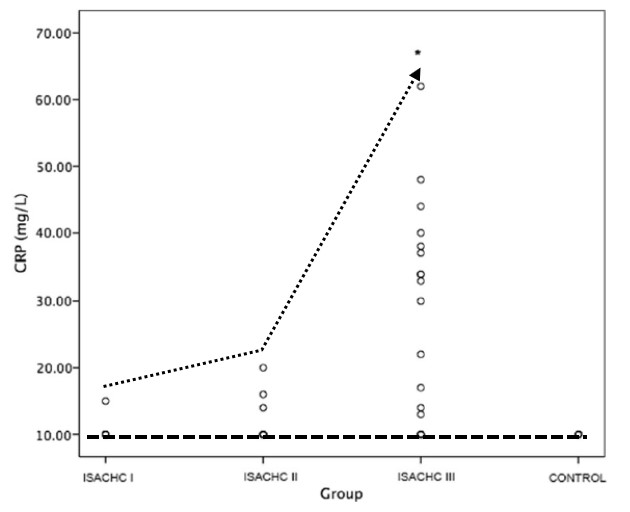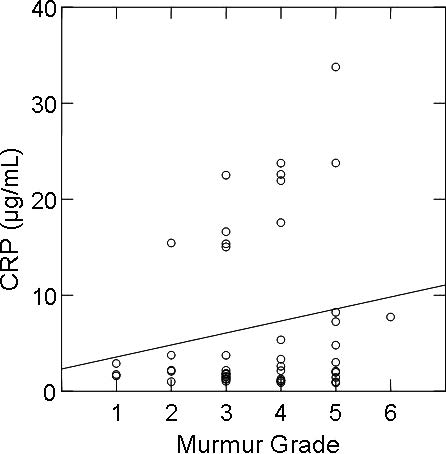
CRP Is Elevated In Cardiac Disease
Inflammation plays a key role in a wide variety of cardiac diseases. In human medicine, the measurement of high-sensitivity CRP is used to predict the future development of heart disease (1,2).
Similarly, an elevated inflammatory response (and hence CRP) is found in dogs. Researchers have documented significant elevations of CRP in dogs with congestive heart failure (3). This increase corresponds with an increase in NT-proBNP, the N-terminal fragment of B-type natriuretic peptide secreted by the cardiac endothelium.
Key Finding:
The degree of CRP elevation corresponds to the degree of heart disease.

A recent study (4) has found increasing levels of CRP corresponds to ISACHC class I-III.

While CVD is believed to be a non-inflammatory degradation of the valves, another study (5) has found increasing CRP levels corresponds to murmur grade indicating that inflammation is involved.
VDI Laboratory has a high-sensitivity canine CRP assay which may be useful in the routine monitoring of dogs at-risk or under therapeutic management of heart disease. Contact VDI for information on pricing and submission.
References:
- Ridker PM (2003) Clinical application of C-reactive protein for cardiovascular disease detection and prevention. Circulation
- Dvorakova A (2004) High-sensitivity C-reactive protein – New parameter in cardiovascular risk assessment. Circulation
- Cunningham SM (2012) Systemic inflammation and endothelial dysfunction in dogs with congestive heart failure. J Vet Intern Med
- Petric A (2018) Systemic inflammation in dogs with advanced-stage heart failure. Acta Vet Scand
- Rush J (2006) C-reactive protein concentration in dogs with chronic valvular disease. J Vet Intern Med
